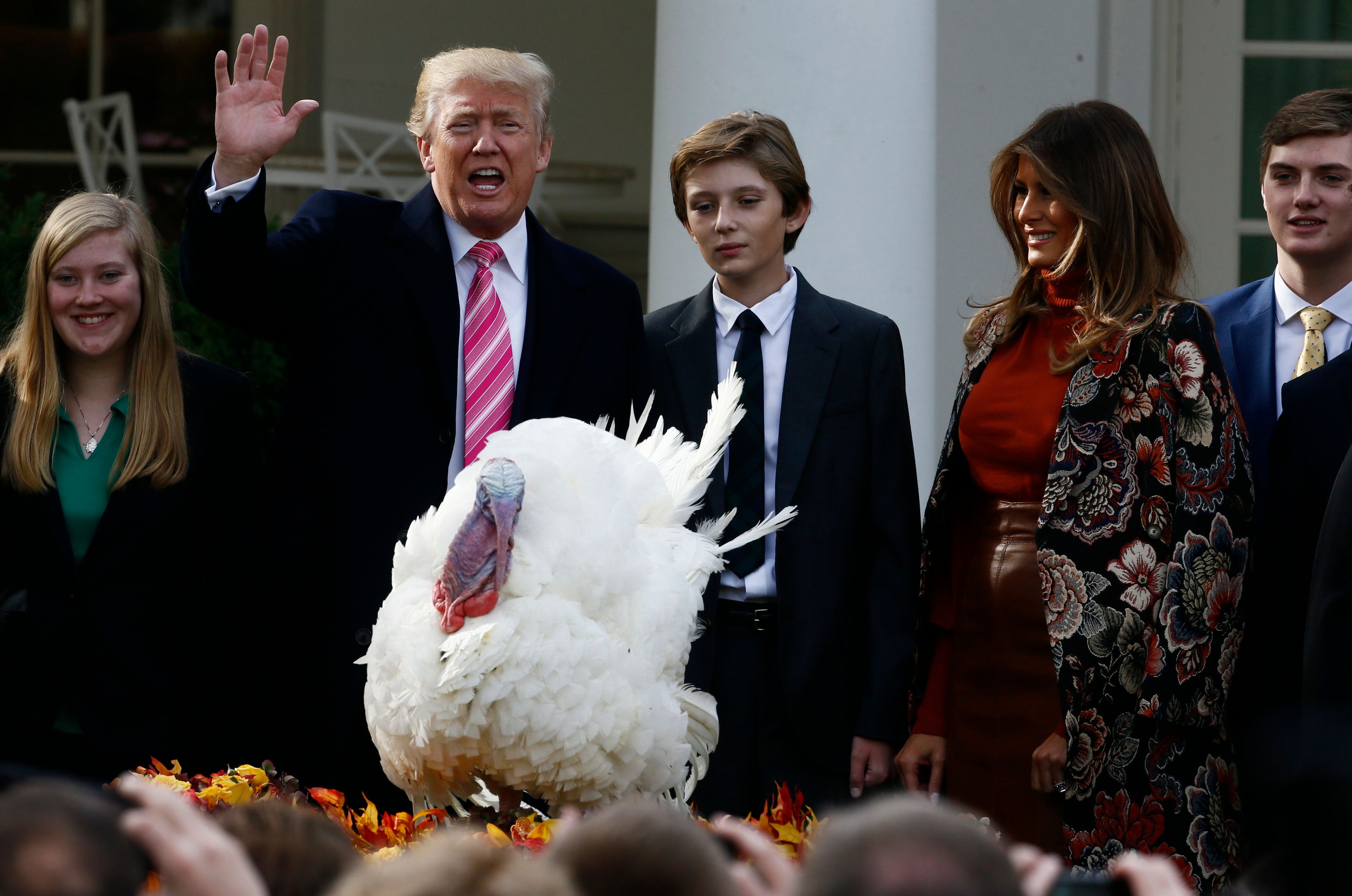November 20, 2018
On Thanksgiving Day, which always falls on the fourth Thursday of November, Americans gather with family and friends to overeat and give thanks for blessings large and small. Here's Willis Sparks with a few things others can be grateful for.
US President Donald Trump can be thankful that Democratic lawmakers and a (very large) pack of the party's presidential candidates will share the political spotlight with him in 2019. That will take some of the focus off the president and allow Democrats to take a bit more heat as the 2020 elections approach.
The Democrats can be thankful that they now have real power for the first time since Trump was elected president. Starting in January, they'll be able to set a legislative agenda, at least in the House of Representatives, and they'll have subpoena power to investigate the president. But beyond fierce opposition to Trump, can they offer voters a vision of the future worth voting for?
French President Emmanuel Macron can be thankful he has a five-year term and will remain on the job until 2022 no matter how deep his poll numbers dive. A recent survey put his approval rating at just 26 percent, and that was before one person died and 400 were injured in nationwide protests against new fuel taxes. Macron can also be thankful that pressure from Trump is driving Paris and Berlin closer together, though that rapprochement comes at a tough time: he's weak politically and Merkel is preparing to leave office.
UK Prime Minister Theresa May can be thankful that after a week of high Brexit drama and months of relentless criticism there's still no credible alternative to either her Brexit plan or her leadership. For now. Hardline members of May's party are scrambling to get enough votes to oust her in a no-confidence move, but it's a gamble: if they fail, she cannot face another leadership challenge for at least a year; if they succeed, Brexit negotiations will become even more tough—with the opposition Labor party waiting in the wings to pounce.
Israeli Prime Minister Benjamin Netanyahu can be thankful that Education Minister Naftali Bennett has decided to keep his Jewish Home party within Netanyahu's governing coalition. Following the resignation last week of Defense Minister Avigdor Lieberman, it appeared Bennett might follow him out of government, undoing Netanyahu's coalition and forcing him to face fresh elections while he is plagued by multiple corruption investigations.
South Africans can be grateful that their governing institutions continue to hold their leaders accountable. President Cyril Ramaphosa, who has promised to clean up corruption within the governing ANC party, agreed last week to repay about $35,000 given to his party leadership campaign by a firm accused of graft. It's an embarrassment for Ramaphosa but a step forward for his country from the administration of former President Jacob Zuma.
Saudi Crown Prince Mohammad bin Salman can be thankful that even as he becomes ever more implicated in the murder of journalist Jamal Khashoggi, his own father appears to have the last word in whether he stays in line to become king – and dad is on his side for now.
Papua New Guinea's Prime Minister Peter O'Neil can be thankful that his small country benefits from economic and strategic competition between China, the US, and other regional powers. Not only did O'Neil pull off a smooth APEC Summit last week, the US and Australia agreed to invest in a major new military base on one of his country's remote islands. That could give an economic boost to the country of 7.5 million people, where 40 percent live on less than $1.25 per day.
The Italian town of Acquetico, home to 131 people, can be thankful that it recently set up a camera to catch people driving too fast. The camera reportedly nailed 58,568 speeders in just two weeks. We're hoping the fines imposed will raise Acquetico's per capita income by 28,000 percent.
Your Signal team—Kevin Allison, Alex Kliment, Gabe Lipton, and Willis Sparks—are grateful that so many of you around the world continue to read Signal. Thank you very, very much!
More For You
In this episode of Tools and Weapons, Microsoft Vice Chair and President Brad Smith sits down with Ed Policy, President and CEO of the Green Bay Packers, to discuss how purpose-driven leadership and innovation are shaping the future of one of the world’s most iconic sports franchises. Ed shares how technology and community-focused initiatives, from Titletown Tech to health and safety innovations on the field, are transforming not just the game of football, but the economy and culture of Green Bay itself. He explains how combining strategic vision with investment in local startups is keeping talent in the Midwest and creating opportunities that extend far beyond Lambeau Field.
Subscribe and find new episodes monthly, wherever you listen to podcasts.
Most Popular
Egyptians head to the polls to elect a new parliament during the first round of the Egyptian parliamentary elections in Giza, Egypt, on November 10, 2025.
Photo by Islam Safwat/NurPhoto
Egyptians are voting this month in parliamentary elections that aren’t expected to change who’s in charge, but could allow President Abdel Fattah el-Sisi to rule beyond 2030.
An injured soldier is transferred to a hospital following a clash between Thai and Cambodian troops over a disputed border area in Sisaket Province,Thailand, December 7, 2025.
Royal Thai Army/Handout via REUTERS
Thailand and Cambodia’s ceasefire is on the verge of collapse. Strikes were launched across their disputed border today, following clashes over the weekend that resulted in the death of a Thai soldier.
© 2025 GZERO Media. All Rights Reserved | A Eurasia Group media company.
